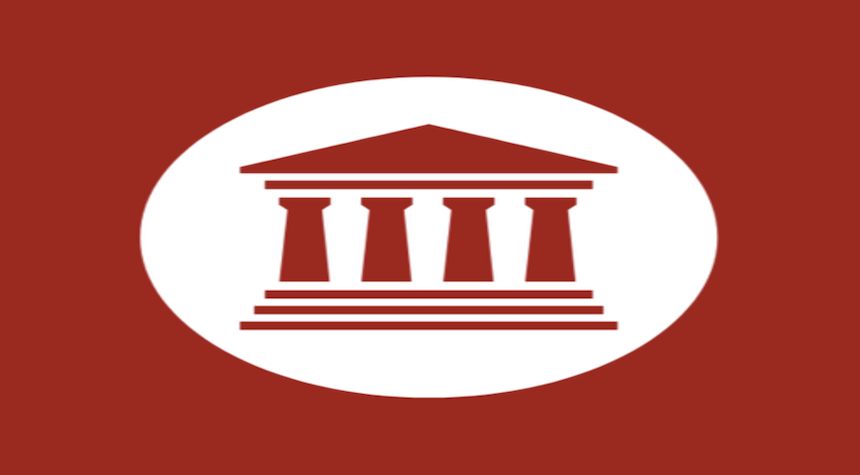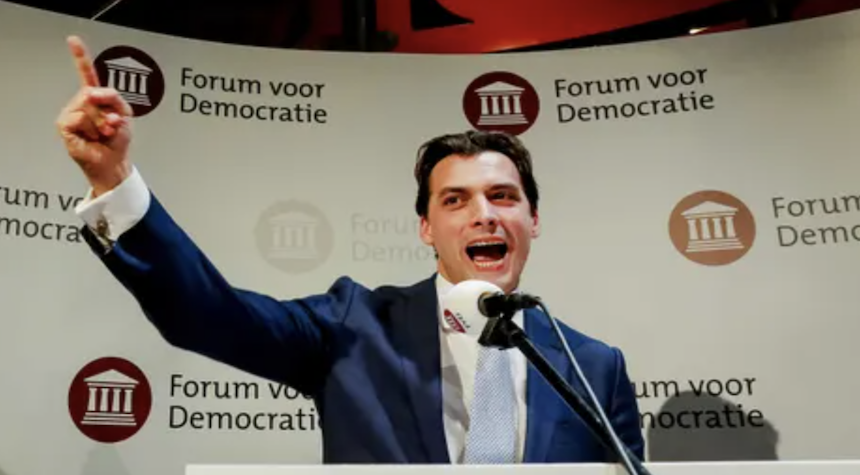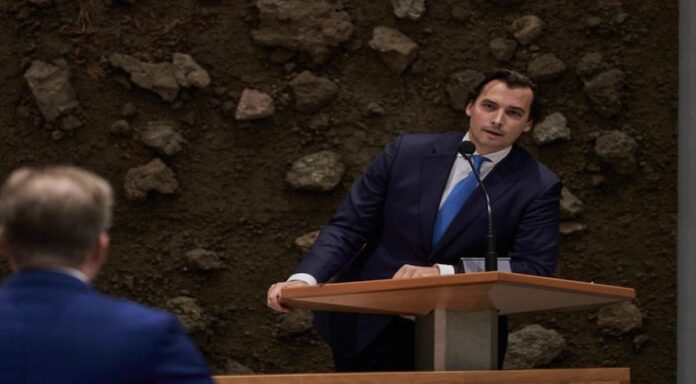We live in a bizarre time. A time when a group of mainstream, self-proclaimed ‘globalist’ parties in the Netherlands have the audacity to hold a meeting to discuss a possible ban on Forum for Democracy (FVD), the largest membership party in the country, led by Thierry Baudet.
The FVD, for those who are unfamiliar with it, is a nationalist and populist party in the Netherlands. The FVD is a vocal critic of the established order and an advocate for those who are increasingly disillusioned with mainstream narratives. They’re been threatened with silence.
The irony is almost comical in this situation. Even the parties that accuse FVD of undermining democracy themselves are orchestrating an attack on democratic principles.

The FVD was accused of being undemocratic, but the FVD had been a staunch advocate of democracy. They are committed to the rule of law, against violence and encourage people to exercise their democratic rights to vote. They advocate for more democracy and not less. Referenda, elected mayors, and respecting the rule of law are all part of their platform.
Why is FVD suddenly being demonized? Does it happen because the FVD questions the status quo? They dare to question the worldview that is dominant, the importance of NATO, and the use of coronavirus vaccinations. And they even interrogate the EU project. Baudet explains that they are targeted because of their “system opposition” and fundamental rejection of the most important narratives.
In a bizarre turn of events these mainstream parties now try to “solve”, the problem of the erosion of public trust, not by addressing the issues at the root, but by trying to silence the party that speaks out against this disenchantment.
In a recent interview, Thierry Baudet responded to the sensational headlines about the possible ban of his FVD party. He stated that the FVD supports peaceful solutions, and dismissed the accusations of undermining democratic values as a fallacy. He explains that he believes that open discussion makes society stronger and that this principle is under threat.

Baudet expresses concern about the future. He envisions a world where the FVD will be marginalized, possibly through increased censorship in social media or financial sanctions. Even in the face of such challenges, Baudet remains resolute and committed to spreading its message and continuing its fight.
It’s absurd that parties who claim to defend democracy undermine it by trying to silence an opposition party for daring to ask hard questions, challenge the dominant narrative, and truly embody democratic spirit through debate and dissent. Baudet correctly points out that questioning democracy does not weaken it; rather, it strengthens it.
This outrageous decision to ban the FVD could be a direct attack not only on the FVD but also on the foundations of democracy. This blatant act of hypocrisy, as well as the undemocratic behavior, should alarm the people of the Netherlands and those all over the world.


